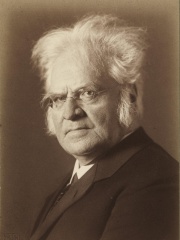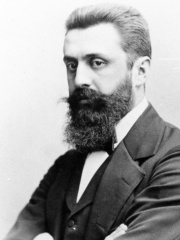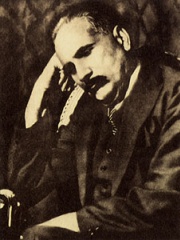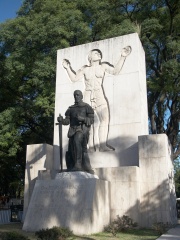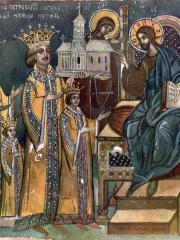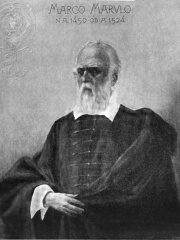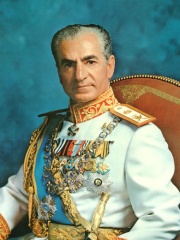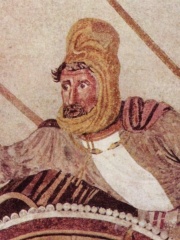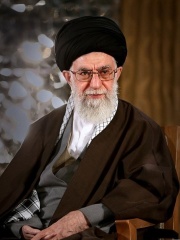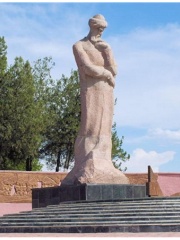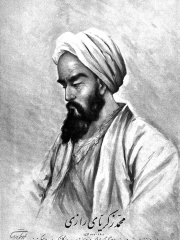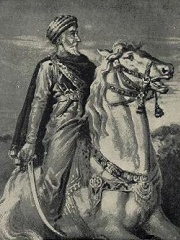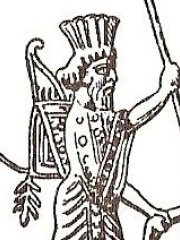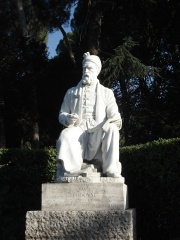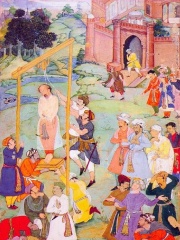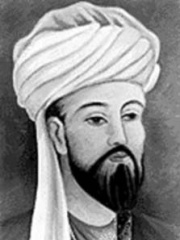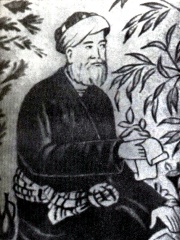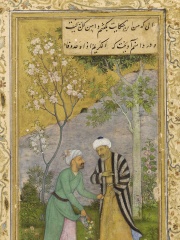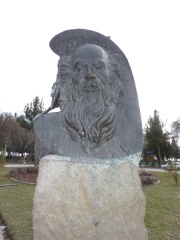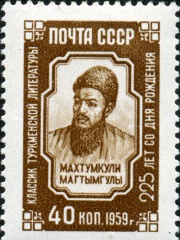كاتب
Ismail I
1487 - 1524
AR.WIKIPEDIA PAGE VIEWS (PV)

 Ismail I
Ismail I
سيرته الذاتية متاحة بـ71 لغة مختلفة على ويكيبيديا (زيادة من 67 في 2024). يحتل Ismail I المرتبة 120 بين أكثر كاتب شعبيةً (تراجعًا من 100 في 2024)، والمرتبة 16 بين أكثر السير الذاتية شعبيةً في إيران (تراجعًا من 11 في 2019)، كما يحتل المرتبة 3 بين أكثر كاتب من إيران شعبيةً.
Memorability Metrics
Page views of Ismail I by language
Among كاتب
Among كاتب, Ismail I ranks 120 out of 7,302. Before him are Anatole France, Bjørnstjerne Bjørnson, André Gide, Theodor Herzl, Hafez, and Rainer Maria Rilke. After him are Mario Vargas Llosa, Federico García Lorca, Muhammad Iqbal, Ivo Andrić, Naguib Mahfouz, and Jane Austen.
Most Popular كاتب in Wikipedia
Go to all RankingsAnatole France
1844 - 1924
HPI: 81.25
Rank: 114
Bjørnstjerne Bjørnson
1832 - 1910
HPI: 81.19
Rank: 115
André Gide
1869 - 1951
HPI: 81.05
Rank: 116
Theodor Herzl
1860 - 1904
HPI: 81.04
Rank: 117
Hafez
1325 - 1389
HPI: 80.96
Rank: 118
Rainer Maria Rilke
1875 - 1926
HPI: 80.94
Rank: 119
Ismail I
1487 - 1524
HPI: 80.93
Rank: 120
Mario Vargas Llosa
1936 - 2025
HPI: 80.93
Rank: 121
Federico García Lorca
1898 - 1936
HPI: 80.92
Rank: 122
Muhammad Iqbal
1877 - 1938
HPI: 80.65
Rank: 123
Ivo Andrić
1892 - 1975
HPI: 80.64
Rank: 124
Naguib Mahfouz
1911 - 2006
HPI: 80.63
Rank: 125
Jane Austen
1775 - 1817
HPI: 80.62
Rank: 126
Contemporaries
Among people born in 1487, Ismail I ranks 2. Before him is Pope Julius III. After him are John Zápolya, Pedro de Mendoza, William I, Count of Nassau-Dillenburg, Bernard van Orley, Michael Stifel, Charles de Lannoy, 1st Prince of Sulmona, Anna of Brandenburg, Fray Tomás de Berlanga, Petru Rareș, and Ulrich, Duke of Württemberg. Among people deceased in 1524, Ismail I ranks 2. Before him is Vasco da Gama. After him are Claude of France, Giulia Farnese, Hans Holbein the Elder, Diego Velázquez de Cuéllar, Joachim Patinir, Marko Marulić, Salaì, Isabella of Aragon, Duchess of Milan, Pierre Terrail, seigneur de Bayard, and Andrea Solari.
Others Born in 1487
Go to all RankingsPope Julius III
RELIGIOUS FIGURE
1487 - 1555
HPI: 81.98
Rank: 1
Ismail I
WRITER
1487 - 1524
HPI: 80.93
Rank: 2
John Zápolya
POLITICIAN
1487 - 1540
HPI: 76.89
Rank: 3
Pedro de Mendoza
EXPLORER
1487 - 1537
HPI: 66.44
Rank: 4
William I, Count of Nassau-Dillenburg
NOBLEMAN
1487 - 1559
HPI: 64.80
Rank: 5
Bernard van Orley
PAINTER
1487 - 1541
HPI: 64.67
Rank: 6
Michael Stifel
MATHEMATICIAN
1487 - 1567
HPI: 64.64
Rank: 7
Charles de Lannoy, 1st Prince of Sulmona
POLITICIAN
1487 - 1527
HPI: 63.41
Rank: 8
Anna of Brandenburg
POLITICIAN
1487 - 1514
HPI: 62.71
Rank: 9
Fray Tomás de Berlanga
RELIGIOUS FIGURE
1487 - 1551
HPI: 62.46
Rank: 10
Petru Rareș
POLITICIAN
1487 - 1546
HPI: 62.39
Rank: 11
Ulrich, Duke of Württemberg
NOBLEMAN
1487 - 1550
HPI: 62.01
Rank: 12
Others Deceased in 1524
Go to all RankingsVasco da Gama
EXPLORER
1460 - 1524
HPI: 91.06
Rank: 1
Ismail I
WRITER
1487 - 1524
HPI: 80.93
Rank: 2
Claude of France
COMPANION
1499 - 1524
HPI: 75.32
Rank: 3
Giulia Farnese
RELIGIOUS FIGURE
1474 - 1524
HPI: 70.60
Rank: 4
Hans Holbein the Elder
PAINTER
1465 - 1524
HPI: 70.57
Rank: 5
Diego Velázquez de Cuéllar
EXPLORER
1465 - 1524
HPI: 70.37
Rank: 6
Joachim Patinir
PAINTER
1480 - 1524
HPI: 69.58
Rank: 7
Marko Marulić
WRITER
1450 - 1524
HPI: 67.81
Rank: 8
Salaì
PAINTER
1480 - 1524
HPI: 67.24
Rank: 9
Isabella of Aragon, Duchess of Milan
POLITICIAN
1470 - 1524
HPI: 67.14
Rank: 10
Pierre Terrail, seigneur de Bayard
MILITARY PERSONNEL
1476 - 1524
HPI: 66.07
Rank: 11
Andrea Solari
PAINTER
1460 - 1524
HPI: 65.75
Rank: 12
In إيران
Among people born in إيران, Ismail I ranks 16 out of NaN. Before him are Mohammad Reza Pahlavi (1919), Darius III (-380), Ali Khamenei (1939), Bahá'u'lláh (1817), Esther (-600), and Hafez (1325). After him are Abdul Qadir Gilani (1078), Ulugh Beg (1394), Muhammad ibn Zakariya al-Razi (865), Hassan-i Sabbah (1050), Cambyses II (-550), and Al-Tabari (839).
Others born in إيران
Go to all RankingsMohammad Reza Pahlavi
POLITICIAN
1919 - 1980
HPI: 82.03
Rank: 10
Darius III
POLITICIAN
380 BC - 330 BC
HPI: 81.71
Rank: 11
Ali Khamenei
POLITICIAN
1939 - Present
HPI: 81.36
Rank: 12
Bahá'u'lláh
RELIGIOUS FIGURE
1817 - 1892
HPI: 81.34
Rank: 13
Esther
RELIGIOUS FIGURE
600 BC - 500 BC
HPI: 81.25
Rank: 14
Hafez
WRITER
1325 - 1389
HPI: 80.96
Rank: 15
Ismail I
WRITER
1487 - 1524
HPI: 80.93
Rank: 16
Abdul Qadir Gilani
RELIGIOUS FIGURE
1078 - 1166
HPI: 79.64
Rank: 17
Ulugh Beg
ASTRONOMER
1394 - 1449
HPI: 79.20
Rank: 18
Muhammad ibn Zakariya al-Razi
PHYSICIAN
865 - 925
HPI: 79.17
Rank: 19
Hassan-i Sabbah
RELIGIOUS FIGURE
1050 - 1124
HPI: 79.08
Rank: 20
Cambyses II
POLITICIAN
550 BC - 522 BC
HPI: 78.72
Rank: 21
Al-Tabari
PHILOSOPHER
839 - 923
HPI: 78.71
Rank: 22
Among كاتب In إيران
Among كاتب born in إيران, Ismail I ranks 3. Before him are Abu Nuwas (762), and Hafez (1325). After him are Ferdowsi (940), Mansur Al-Hallaj (858), Nasir al-Din al-Tusi (1201), Jami (1414), Shams Tabrizi (1185), Doris Lessing (1919), Saadi Shirazi (1210), Attar of Nishapur (1145), and Magtymguly Pyragy (1733).
Abu Nuwas
762 - 814
HPI: 82.59
Rank: 1
Hafez
1325 - 1389
HPI: 80.96
Rank: 2
Ismail I
1487 - 1524
HPI: 80.93
Rank: 3
Ferdowsi
940 - 1020
HPI: 77.11
Rank: 4
Mansur Al-Hallaj
858 - 922
HPI: 76.84
Rank: 5
Nasir al-Din al-Tusi
1201 - 1274
HPI: 76.41
Rank: 6
Jami
1414 - 1492
HPI: 76.34
Rank: 7
Shams Tabrizi
1185 - 1248
HPI: 75.75
Rank: 8
Doris Lessing
1919 - 2013
HPI: 75.37
Rank: 9
Saadi Shirazi
1210 - 1291
HPI: 75.10
Rank: 10
Attar of Nishapur
1145 - 1220
HPI: 73.64
Rank: 11
Magtymguly Pyragy
1733 - 1807
HPI: 70.86
Rank: 12

